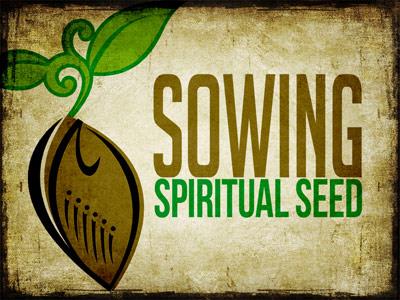-
The Mustard Seed And The Yeast Series
Contributed by Allan Quak on May 15, 2023 (message contributor)
Summary: The parables of the Mustard Seed and the Yeast encourage Kingdom members to expect growth and an abundant response to the Gospel, irrespective of, what may seem like, an insignificant beginning or effort.
Message
Matthew 13:31-33
“The Mustard Seed and the Yeast”
Today our parable focus is on the parable of the mustard seed and the parable of the yeast.
The Mustard Seed Parable appears in Matthew Mark and Luke.
The Yeast Parable only appears in Matthew and Luke.
When you read the parables in the different Gospels you do get slightly different versions. These different versions should never lead us to the conclusion that Scripture has some sort of error. Rather what we need to realise is:-
Jesus didn’t just tell one parable at one time. As Jesus was travelling around he taught a similar parable at different locations. We know this is the case because the context where Luke places the parable is very different to the context Matthew and Mark place the parable.
We also need to remember that each Gospel writer only gives a small account of all the teaching. They don’t all record every single thing Jesus said. Indeed when John finishes writing his Gospel John says, “Jesus did many other things as well. If every one of them were written down, I suppose that even the whole world would not have room for the books that would be written” (John 21:25). The differences between the Gospels shows us that each writer has a different emphasis.
You can trust Scripture … you can always trust Scripture … to speak the very God-breathed Word. The Scripture we are going to trust today are the parables as they are recorded in Matthew 13:31-33.
31 He told them another parable: ‘The kingdom of heaven is like a mustard seed, which a man took and planted in his field. 32 Though it is the smallest of all seeds, yet when it grows, it is the largest of garden plants and becomes a tree, so that the birds come and perch in its branches.’
33 He told them still another parable: ‘The kingdom of heaven is like yeast that a woman took and mixed into about thirty kilograms of flour until it worked all through the dough.’
What is the kingdom of heaven like?
A very small insignificant seed, which becomes a tree.
A small amount of yeast which impacts a large amount of flour.
God’s kingdom starts small and grows in size and influence far beyond the source.
The 120 believers in the upper room who have gathered in the week after Jesus had ascended has today become a world-wide global movement which, over history, has had billions of members. An insignificant start has resulted in huge growth. We are gathered here today because of this growth.
Kingdom members can be found in all walks of life. Medical. Political. Educators. Blue Collar workers. Families. Administrators. CEO’s. Wealthy. Poor. In all these spheres of life … and many more … there are Christians who are seeking to be yeast. Seeking to impact and influence with the hope of Christ and a biblical worldview. The growth of influence of Christians is huge. Even today each one of us in our own sphere is contributing to the influence of the Kingdom on a daily basis.
That is what these parables are teaching … but that is not where they stop. The focus is not on growth but on the expectation of an abundant response.
Thinking about the mustard seed.
Scientifically speaking we know that the mustard seed is not the smallest seed. We know that because, in our day
… we have micrometres which can measure down to 0.00254mm.
… we also have scales that can measure the weight of atoms.
But we can’t put our modern interpretation onto the culture of the day.
Today we compare all seeds from all over the world – Jesus is speaking to a Jews in Judea about the seeds they know that occur in the garden.
Today we compare all modern seeds – we have many more types of seeds today than 2000 years ago.
So we need to be thinking about the parable as it was told in the context. In the days of Jesus, when you held mustard seeds in your hand, the culture recognised that theses seeds are small – almost insignificant.
This one, almost insignificant seed, is planted in a garden. It grows quickly. It grows into a large bush that can be 3 meters tall – it has grown to the size of many trees. The mustard tree produced an oil which was used for medicinal purposes. The fruit and seeds of the tree where used as a flavoursome condiment, and they were also for medicinal purposes. The tree was capable of continuing to produce seed even when initially harvested. The tree gave an abundant supply. As part of its abundance the tree also was a place where birds could nest. The size of the tree enabled birds to be in the shade away from the sun. The tree is a place of abundant welcome and protection.

 Sermon Central
Sermon Central



